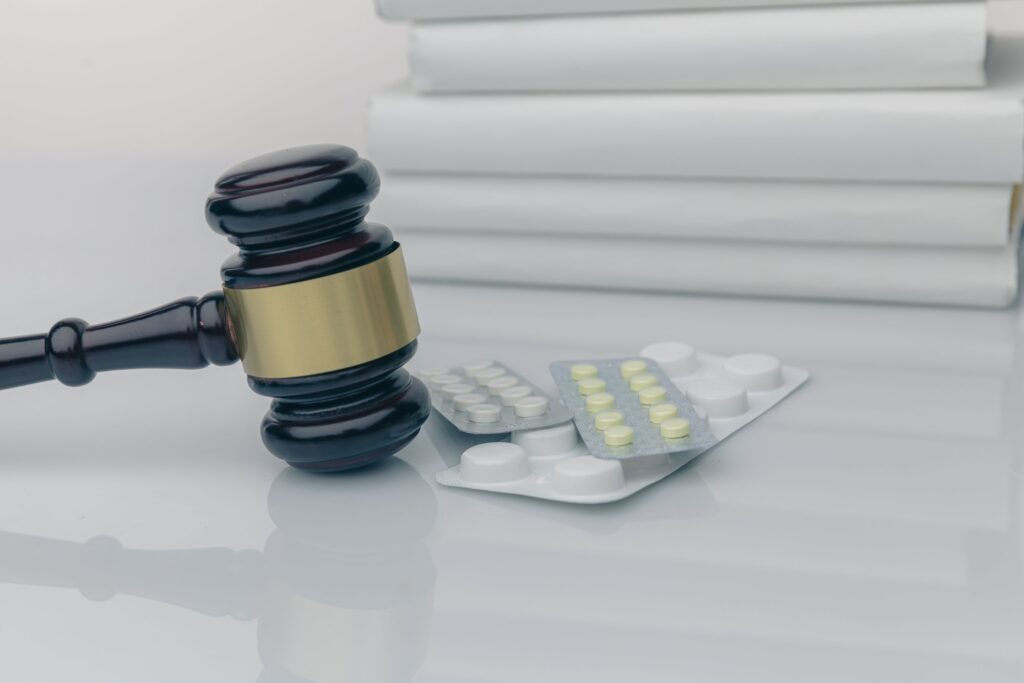A nail bed drug test can be ordered by a court in a child custody case. In child custody cases, courts often consider evidence showing each parent’s ability to provide a safe and stable environment. If there are concerns about drug use, the court may order drug testing to assess the risk and ensure the child’s safety. One method is the nail bed drug test—a reliable testing method that detects long-term drug use.
What is a Nail Bed Drug Test?
Nail bed drug tests analyze substances in fingernails or toenails to detect drug use over an extended period, often up to 6 months. Drugs metabolize into the bloodstream, eventually reaching the nail bed and integrating into the keratin structure of the nails. This reveals long-term patterns of drug use, unlike urine or saliva tests, which only detect recent use.
Nail bed tests are less invasive than hair tests and hard to tamper with, making them reliable for court-mandated testing. Courts consider these tests useful in child custody cases where past drug use is relevant to the case. Courts may order nail bed tests in custody cases when credible concerns about a parent’s substance abuse history arise.
How Does a Nail Bed Drug Test Affect Child Custody Cases?
The results of a nail bed drug test can significantly impact custody arrangements. If a parent tests positive for illegal drugs or prescription medications that impair their ability to care for the child, the court may impose various measures to ensure the child’s safety, including:
- Supervised Visitation: The court may restrict the parent to supervised visits, ensuring drug use does not impact child’s safety.
- Temporary Loss of Custody Rights: In cases where drug use poses a serious risk, the court may limit or suspend custody rights temporarily until the parent completes rehabilitation or counseling.
- Mandatory Treatment Programs: Courts may require parents who test positive to complete drug treatment programs or participate in regular testing.
- Custody Terms: If the results indicate a parent’s substance use has worsened, the court may reevaluate the custody terms.
The court can mandate drug testing in custody cases, though parents retain rights and may challenge these orders. Parents may object to nail bed testing based on privacy, probable cause, or accuracy concerns, though these are challenging. Courts prioritize child safety, considering objections but typically proceed with testing if credible substance use concerns exist.
Parents may also request a secondary test to confirm initial results if they believe an error or contamination occurred. However, challenges are more successful if the parent has evidence of sobriety and no significant history of substance abuse.
Alternatives to Nail Bed Testing
In some cases, the court may consider alternative drug testing methods, such as hair follicle, urine, or saliva tests, which serve different purposes depending on the timeline of drug use under scrutiny. Hair follicle tests can detect long-term use, while urine and saliva tests typically detect more recent consumption. Each test has its limitations, and the choice of testing depends on the court’s needs and the suspected duration of drug use.
Tulsa Child Custody Lawyers
Courts may order nail bed tests in custody cases with suspected drug use affecting the child’s well-being. The nail bed test offers a look at long-term substance use and can shape custody arrangements significantly if the results indicate unsafe behavior. While parents have some rights to challenge testing, the court’s priority is always the child’s safety.
If drug use is an issue in your custody case, a family law attorney can help you navigate your rights throughout the process. If you need help, contact the Tulsa child custody lawyers at Kania Law Office by calling (918)–743-2233 or online.
Tulsa's Local Legal Custody Lawyers
 Are you looking for Tulsa attorneys who will fight aggressively for you? Our team of legal custody attorneys have the experience needed in Oklahoma law to secure the outcome you deserve.
Are you looking for Tulsa attorneys who will fight aggressively for you? Our team of legal custody attorneys have the experience needed in Oklahoma law to secure the outcome you deserve.
Call us today for a free consultation 918-743-2233 or contact us online.


